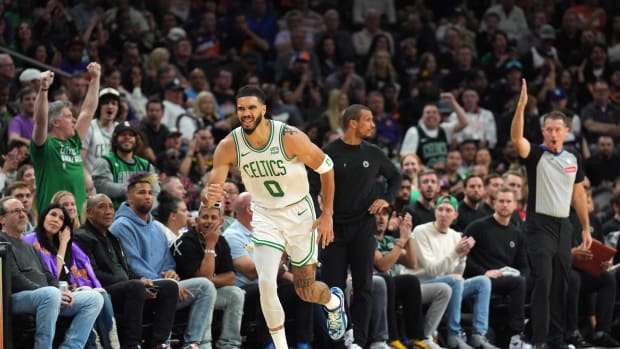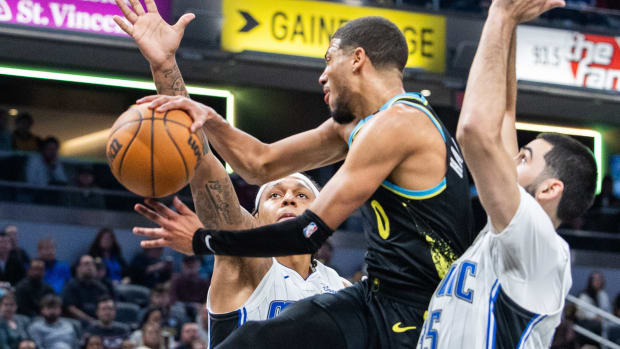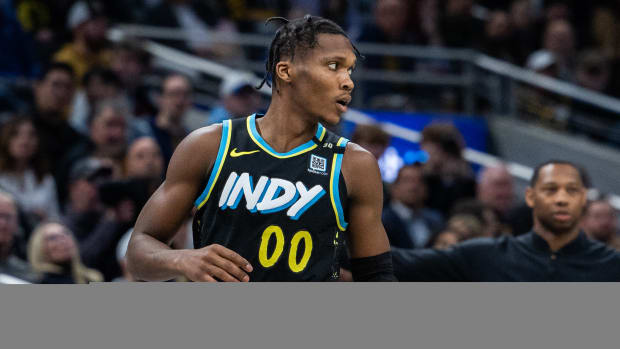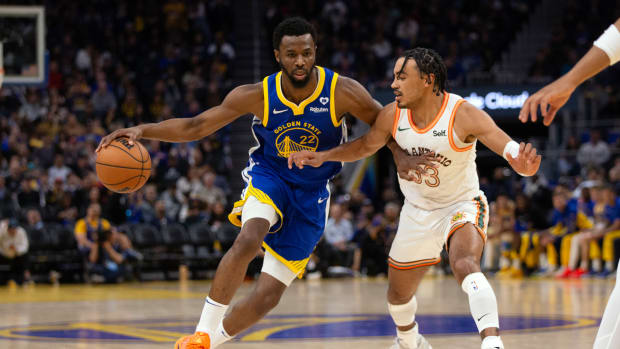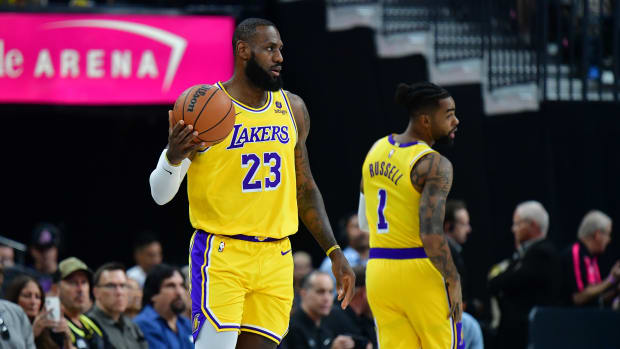LeBron James Defies Logic and the NBA Life Cycle
At the heart of the NBA, as with all things, is a life cycle. Contending teams are born in hope and glory. At first, they struggle against the grain of what they don't yet know about themselves. They come to thrive, for a time, if they're fortunate enough to keep healthy. And then it falls apart. Some once-formidable teams erode over years and others implode in a flash. What they share is the undeniable end of things. The ticking clock of aging bodies, swelling contracts, and advancing competition stops for no one.
Except, it seems, for LeBron James.
This Is What the World Was Like the Last Time LeBron Didn’t Make the Finals
As of Sunday night, James secured his involvement in his eighth straight NBA Finals. During that time, LeBron changed teams and cities. He saw star teammates peak and decline, while another left town after requesting a trade. He saw Miami clear their books to build a team around him from scratch, then moved to Cleveland where the Cavs flipped damn near their entire roster to reach contending standards. Then, in the middle of this season, they flipped it again. The guard in the West changed several times over. His rivals in the East grew strong, fell, and decomposed. Many of his best opponents have since retired.
The last team to win the East without LeBron featured media personalities Kevin Garnett and Paul Pierce; author Ray Allen; noted luminary Rasheed Wallace; Mavericks assistant vice president of basketball operations Michael Finley; entrepreneur Glen Davis; broadcaster Brian Scalabrine; and Sports Illustrated podcaster Nate Robinson. The only remnants of that team still in the league are Rajon Rondo and Kendrick Perkins, who works for the Cavs as something between player and consultant.
What LeBron has done in these last eight years is astonishing. The only other players in NBA history to match his streak of Finals appearances did so when the league had fewer than 10 teams. They played a sport that is hardly recognizable. James, on the other hand, has dominated the most-talented, best-scouted, most-athletic, and best-prepared basketball league in history. The NBA is deeper and smarter than ever before. Yet in all its collective strength, no combination of players and strategists have managed to keep LeBron from the Finals since 2010. Those teams good enough to even compete with James tend to only last a few seasons before packing it in.
The relative weakness of the Eastern Conference tends to be used as a cudgel against James and his legacy—the quality of competition fashioned into an indictment against the victor. The circumstances are more complicated when you consider how many viable opponents that LeBron has snuffed out. The dissolution of the Pierce-Garnett Celtics came when Danny Ainge saw the writing on the wall. Repeated playoff losses to LeBron shattered the upstart Pacers of the early 2010s. Part of the reason the East has never risen to meet James is that he frustrates his opponents before their rosters fully develop. To compete against him in the playoffs is to be shown your every limitation.
In response, some opponents have splurged on defensive wings or rim-protecting bigs—impairing their future flexibility in the process. LeBron's dominance has led other franchises in the East to rebuild or to delay. The Process, in a sense, is predicated on the futility of competing with a force as dominant as James. If the best players on your team are Andre Iguodala and Jrue Holiday, why fight the inevitable?
Other teams have fired good coaches (see: Casey, Dwane) or made wholesale changes after losing to LeBron in the postseason. His teams have been so good for so long as to suppress the growth of the teams who might challenge him. He has robbed an entire conference of its continuity. The only way to beat James in a playoff series is to outfit a roster with ideal personnel and give it time to coalesce. Yet the very act of competing against James encourages teams to either take big swings (see: the 2013 Nets) that they'll soon come to regret, or bail on pretty good rosters that just aren't good enough.
The Celtics’ Superpower Was Home Court, but LeBron Was Their Kryptonite
"I’m a believer that teams can get stale," Doc Rivers told Zach Lowe (then of Grantland) in 2015. "After a while, you don’t win. It just doesn’t work." Rivers was addressing one of the issues facing his Clippers, then, but that same staleness ended his previous tenure with the Celtics. If LeBron wasn't the cause of Boston changing course—a decision that sent Garnett and Pierce (among others) to Brooklyn, encouraged Rivers to change teams, and set up the present-day Celtics with a trove of draft picks—he was at least the catalyst.
Through all that change, James plugged away, transcending the very idea of a championship core. The Heat ran their course, as did his on-court relationship with Kyrie Irving. LeBron responded by dragging one of the worst defensive teams in the league and his worst supporting cast in years all the way to the Finals. The story of the NBA is told by its revolutions: champion to champion, era to era. These eight years should be remembered differently. Because while the league around him turned, LeBron sat at its center, perfectly immutable, less a superstar than a sun.
































